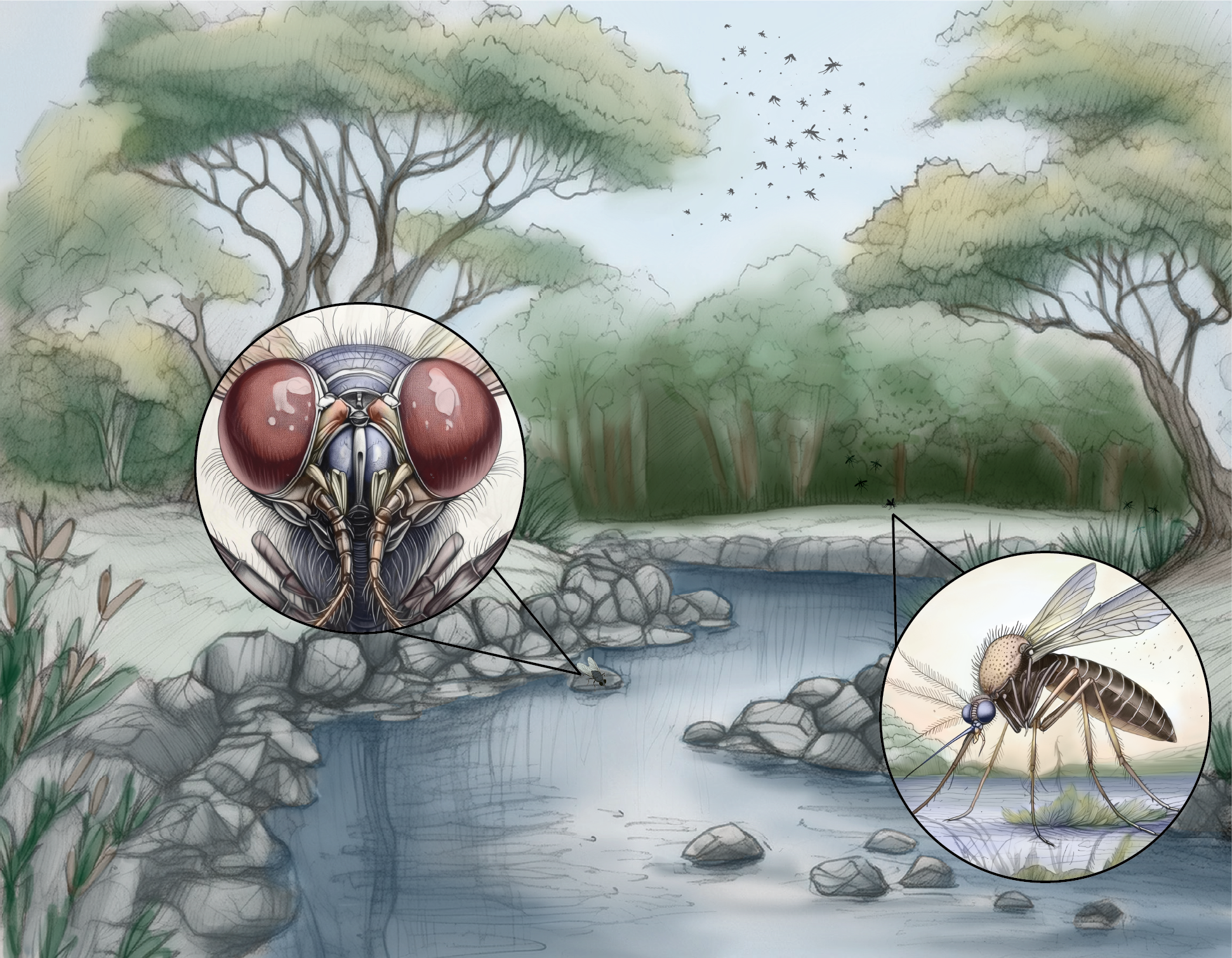Mosquito season
Bloodsuckers. Pests. Nippers. Ankle biters. The nicknames for mosquitoes are as numerous as they are unflattering. After all, no one wants to spend their summers scratching bug bites or slathering on calamine lotion.
Sure, mosquitoes are annoying, but they are actually one of the most dangerous disease carriers in the world. For such tiny creatures, mosquitoes are responsible for spreading a large variety of diseases, including:
- malaria,
- West Nile,
- yellow fever,
- Zika viruses,
- Chikungunya
- and four types of dengue virus.
Elmer Gray, a public health extension specialist with the University of Georgia, is an expert in mosquito control. Gray says that removing standing water from household items—drains, gutters, abandoned pool covers—is key to suppressing mosquito populations.
“The larval stage develops in standing water,” says Gray. “One of the most common issues is the trays under plants. If you’ve got mosquitoes on your deck and a lot of plants, you’re basically growing them yourself.”
How to Keep Mosquitoes Away
If you’re outside in a public area and encounter mosquitoes, Gray has suggestions for making yourself more invisible to these tenacious creatures.
- Wear loose, light-colored clothing to provide less contrast in the outdoors during bright daylight hours. This will also reduce your heat signature.
- Wear long sleeves and breathable fabric that covers your skin.
- Use EPA-approved repellants every few hours, and make sure to wash it off once inside.
- Mosquitoes aren’t strong fliers, so use a large box fan in your yard or carry a handheld fan on the go.
Unfortunately, this won’t always be enough. Mosquitoes are some of the world’s oldest and most experienced hunters. They have been found in amber that’s 100 million years old. Remember that scene in Jurassic Park with the mosquito locked in ancient amber? That part of the movie is actually pretty accurate.
“They were feeding on the dinosaurs,” Gray says.
Mosquitoes’ sensory organs are highly specialized, and certain smells make some people a bigger target. Mosquitoes are thought to be attracted to people with high metabolic activity. So, mosquitos seek out pregnant women because of their higher body temperature and metabolic rate. Active people express more carbon dioxide, which is also appealing to mosquitoes.
“We have a lot of different scents coming off our skins,” says Gray. “That’s going to play the biggest role in whether you’re attractive to mosquitoes. However, people have been living in nature with insects forever. They’re out there doing their thing, but that shouldn’t keep you from enjoying the great outdoors.”
Shoo, fly. Don’t bother me.
Mosquitos aren’t the only flying pests that can ruin a nice summer barbecue.
Gray also runs the only black fly lab in the world at UGA’s Riverbend Laboratories North. Black flies are technically gnats that are closely related to mosquitoes. Like their relatives, the females feed on blood to produce their eggs. Unlike mosquitoes, black flies develop in running water like rivers and streams.
In the United States, black flies are especially problematic in northern regions, but there are populations nationwide. If you have what looks like gnats swarming around your face in the coming weeks, they are likely to be black flies. These flies are attracted to the carbon dioxide in your breath and will get very close to you, trying to figure out if you’re an animal they want to bite.
If you’re out in nature and encounter a cloud of black flies, don’t waste time and energy frantically fighting them off with bug spray. You can mostly stay off their radar with the same techniques to avoid mosquitoes. Experts also suggest avoiding areas near running water during midday hours or on humid days, and before summer thunderstorms when black flies are especially active.
“As a pest control specialist, we’re not trying to eradicate anything. We’re just trying to keep them down so that it’s comfortable to go to the botanical gardens and hang out in your backyard,” says Gray.
Eradicating black flies would be an almost impossible task. Each female fly lays about 200 eggs, more than enough to restart a population.
“Their reproductive potential is amazing. We can keep the adult flies down, but they just keep coming back with just a few eggs. They’re not going anywhere soon, so it’s up to us to adapt.”


